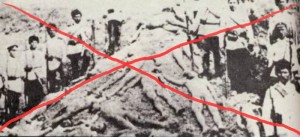The Sixth Commandment
Hadawar hashishi הדּבר השּׁשּׁי
Thou shalt not murder. (2M 20:13 (12))

Question: What does the sixth commandment order us?
Answer: The sixth commandment orders us not to murder, ie. not to take your own life or anyone else's.
Question: Is all deprivation of life unlawful murder?
Answer: In some cases deprivation of life is not murder, for example if the death penalty is based on the decision of a rightful judgment or if it is a killing of an enemy in a war of defense.
Question: It is necessary to understand this commandment in the literal sense?
Answer: No, this commandment should be understood in a broad sense, it prohibits not only murder, but all injustice, insult, defamation and humiliation by deed or by word. This prohibits us from physically emotionally harming our felllow men,
Question: What obligations arise from this commandment?
Answer: From this commandment the obligation arises to help our fellow men and to relieve his poverty and therefore we are obliged to:
1. To ensure the assistance of a dying person, to help to poor and infirm people, to care for widows and orphans, to make sure orphans get adequate education and to visit people who are ill.
2. To be compassionate to fellow men and treat animals humanely,
3. To forgive to our enemies and to strive to reconcile with them,
Question: What other obligation arises from this commandment?
Answer: From this commandment arises the obligation of a timely marriage, because one who does not marry within a suitable time, kills his/her offspring.
This commandment is confirmed by the following verses of Holy Scripture:
Thou shalt not hate thy brother in thy heart; thou shalt surely rebuke thy neighbour, and not bear sin because of him. (3M 19:18)
And if a stranger sojourn with thee in your land, ye shall not wrong him, The stranger that sojourneth with you shall be unto you as the home-born among you, and thou shalt love him as thyself; for ye were strangers in the land of Egypt: I am יהוה your God. (3M 19: 33-34)
If there be among you a needy man, one of thy brethren, within any of thy gates, in thy land which יהוה thy God giveth thee, thou shalt not harden thy heart, nor shut thy hand from thy needy brother; but thou shalt surely open thy hand unto him, and shalt surely lend him sufficient for his need in that which he wanteth. Beware that there be not a base thought in thy heart and you say: 'The seventh year, the year of release, is at hand'; and thine eye be evil against thy needy brother, and thou give him nought; and he cry unto יהוה against thee, and it be sin in thee. Thou shalt surely give to him, and thy heart shall not be grieved when thou givest unto him; because for this thing יהוה thy God will bless thee in all thy work, and in all that thou do. (5M 15:7-10)
When thou gatherest the grapes of thy vineyard, thou shalt not glean it after thee; it shall be for the stranger, for the fatherless, and for the widow. (5M 24:21)
If thou see the ass of him that hateth thee lying under its burden, thou shalt not pass by him; thou shalt surely release it's burden with him. (2 M 23:5)
Thou shalt not muzzle an ox when he treadeth out the corn. (5M 25:4)
If thine enemy be hungry, give him bread to eat, and if he be thirsty, give him water to drink. (Proverbs 25:21)